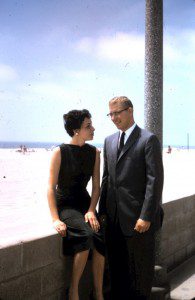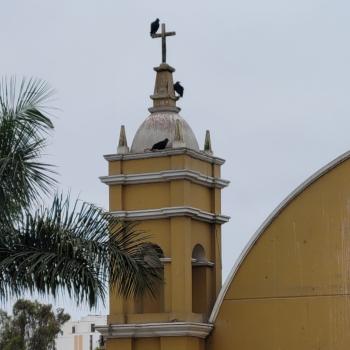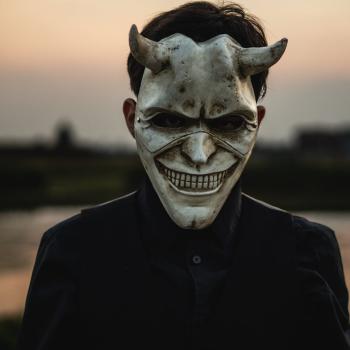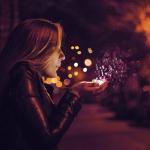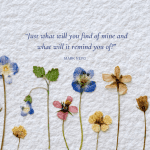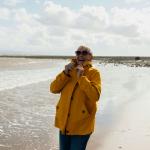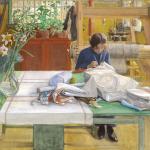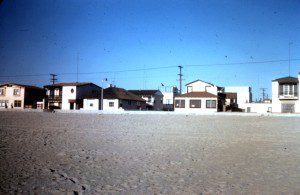 Last night I happened to watch the 1959 movie “On the Beach.” It’s amazing how an old movie or melody or photo can stir up a long-forgotten memory that was once a vivid event in our life. Such was the case for me as I watched Gregory Peck and Ava Gardner in a black-and-white thought-provoker from 1959:
Last night I happened to watch the 1959 movie “On the Beach.” It’s amazing how an old movie or melody or photo can stir up a long-forgotten memory that was once a vivid event in our life. Such was the case for me as I watched Gregory Peck and Ava Gardner in a black-and-white thought-provoker from 1959:
The scene is Melbourne, Australia, in the 1960’s. A brief nuclear exchange between the super powers has killed everyone in the northern hemisphere. A few cities were destroyed, but the real killer is a globe-encircling radioactive contamination of the atmosphere. Unfortunately, trade winds are slowly but inevitably bringing the radiation south to Melbourne.
The movie is about hope…or rather the lack of hope. There is hope that natural causes might stop the inevitable drift of the radiation southward and spare Melbourne. That hope was proved to be a false hope. For those in the movie, all that is left is for each individual to determine how to end their life as graciously as possible or to accept a slow, painful and debilitating death from radiation for themselves and their loved ones.
The closing scenes of the move show the empty streets of Melbourne seemingly unharmed, but devoid of people.
For me, the movie brought both beautiful and painful memories.
My wife and I read Nevil Shute’s novel On the Beach in 1957 when it was first published. We were newlyweds living on the beach of Santa Monica Bay in southern California. The book frightened us both, as it was intended to do, with the insanity of nuclear proliferation. These were unsteady times, and the thought of such an event happening lurked in our consciousness, in spite of all the assurances that were given. But for us, young and in love and living in such a delightful place, life was good.
The movie brought back beautiful memories of those days, including this one:
Late one Saturday morning in early summer, the two of us strolled the beach hand-in-hand on a gorgeous southern California day: a blue sky and bright sun, a cool breeze off the ocean, the rhythmic sound of the surf and the view of a white crescent of sand stretching from Palos Verdes to our south on northward toward distant Santa Barbara. There we were, a girl from Nebraska and a boy from Ohio, living the California dream…alone on that beautiful beach. The thought struck us both about the same time: we were alone! Where was everybody? We saw the world as Nevil Shute intended us to see it: in all its beauty. But missing were the sights and sounds of people, of children laughing, of teenagers splashing in the surf, of the volleyball players and traffic noise from the nearby streets. We were alone!
We later learned that all of Santa Monica Bay had been evacuated. It was feared an earthquake, thousands of miles away somewhere in the South Pacific, might have created a shock wave that would travel quickly across the ocean unseen until it hit land, where it would form a series of huge waves. There was a chance it might strike Santa Monica Bay. We had slept through all the warnings: the loudspeakers from the beach, the news flashes on radio and television and the blaring sirens. The tidal wave, if we saw it, turned out to be just another wave, not even big enough to surf.
No, the tidal wave didn’t get us, but the cold uneasiness of being in a place that should be crowded with people and there were none left and indelible mark on me.
A few years later my job took me to eastern Pennsylvania. We built a small home and moved in with our three young children. Then came 1969 and the Cuban Missile Crisis—history recalls it as the closest the world has ever come to a nuclear war. One night I awoke in a cold sweat from a dream that relived the fear from that day on the beach and Nevil Shute’s tale of those poor souls in Melbourne. The dream made me realize that the greatest fear of such an event is not the event itself, but the lack of hope.
The next morning I began building a fallout-shelter in the basement of my home, following the government’s published specifications. I never really believed it would ever help us, but at least it would give my family the ability to hope. I had learned what a horrible thing it is to have no hope.
How often we forget the fears of the past…as though they never were real at all.
Will that also be true of our fears of today?


